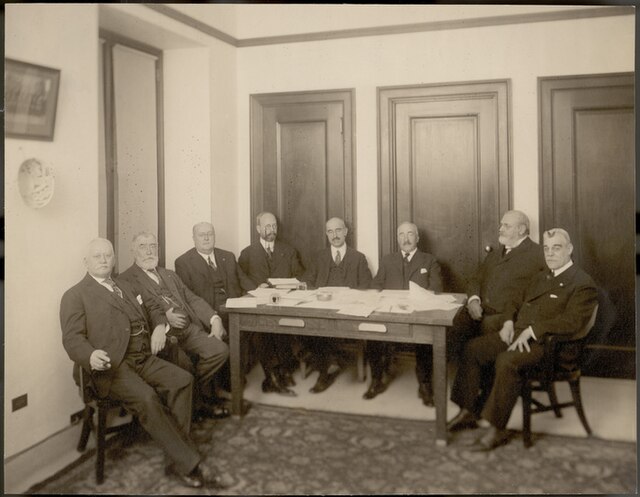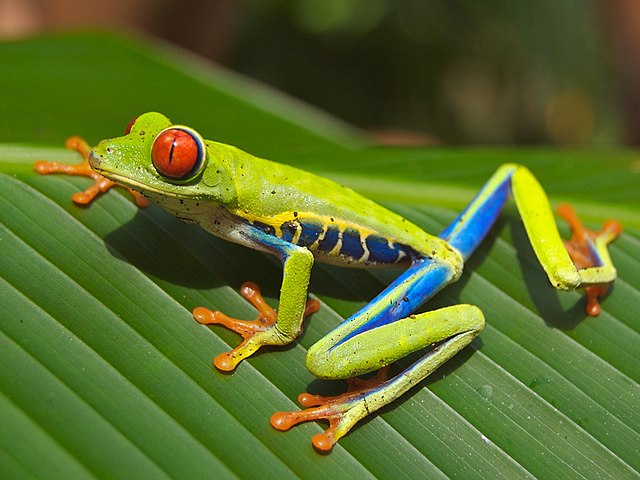Minor Cooper Keith was an American businessman whose railroad, commercial agriculture, and cargo liner enterprises had a major impact on the national economies of the Central American countries, as well as on the Caribbean region of Colombia. Keith's work on the Costa Rican railroad to the Caribbean, a project begun by his uncle Henry Meiggs, led him to become involved in the large-scale export of bananas to the United States. In 1899, Keith's banana-trading concerns were absorbed into the powerful United Fruit Company, of which he became vice-president. Keith was also involved in a number of other business ventures, including gold mining in Costa Rica and real estate development in the US.
Keith in 1917
Board of Trustees of the Heye Foundation, 1920. From left to right: Minor C. Keith, James Bishop Ford, George Gustav Heye, Frederic Kimber Seward, Frederick Kingsbury Curtis, Samuel Riber, Jr., Archer Milton Huntington, and Harmon Washington Hendricks.
Costa Rica, officially the Republic of Costa Rica, is a country in the Central American region of North America. Costa Rica is bordered by Nicaragua to the north, the Caribbean Sea to the northeast, Panama to the southeast, and the Pacific Ocean to the southwest, as well as maritime border with Ecuador to the south of Cocos Island. It has a population of around five million in a land area of 51,060 km2 (19,710 sq mi). An estimated 333,980 people live in the capital and largest city, San José, with around two million people in the surrounding metropolitan area.
Stone spheres created by the Diquis culture at the National Museum of Costa Rica. The sphere is the icon of the country's cultural identity.
The Ujarrás historical site in the Orosí Valley, Cartago province. The church was built between 1686 and 1693.
The 1849 national coat of arms was featured in the first postal stamp issued in 1862.
Red-eyed tree frog (Agalychnis callidryas)






